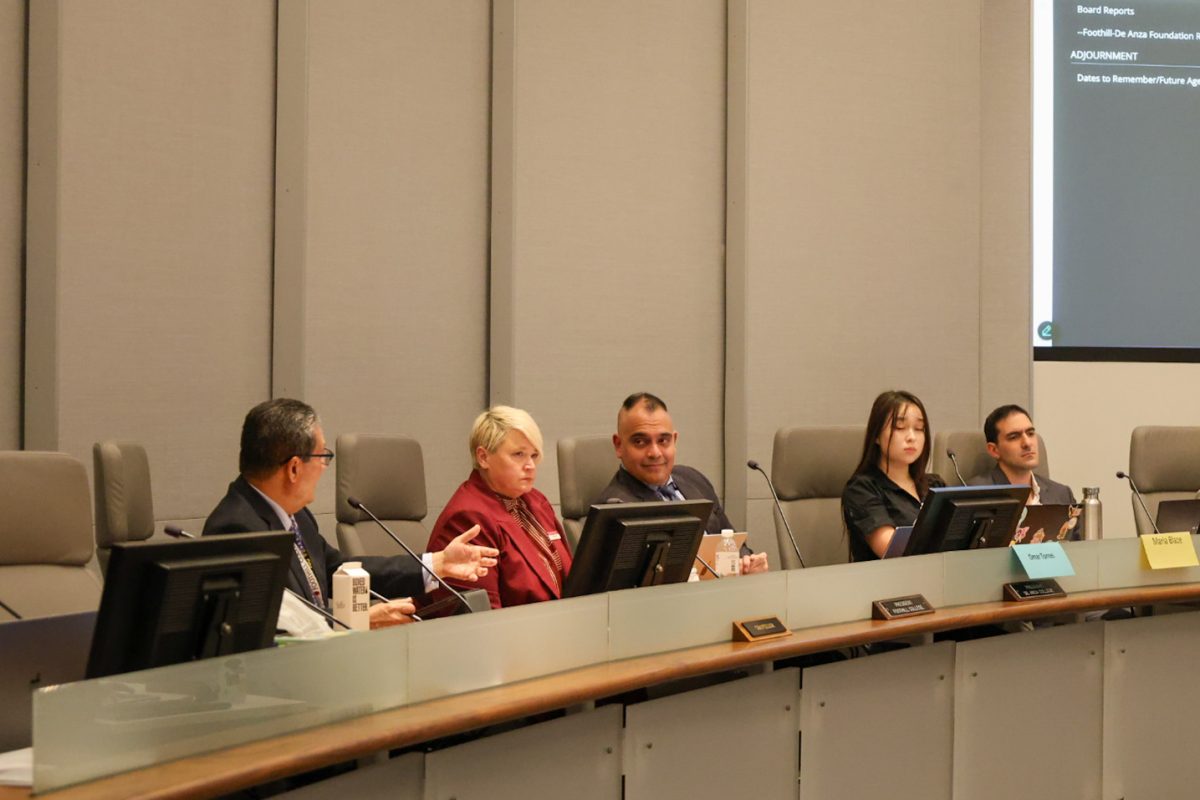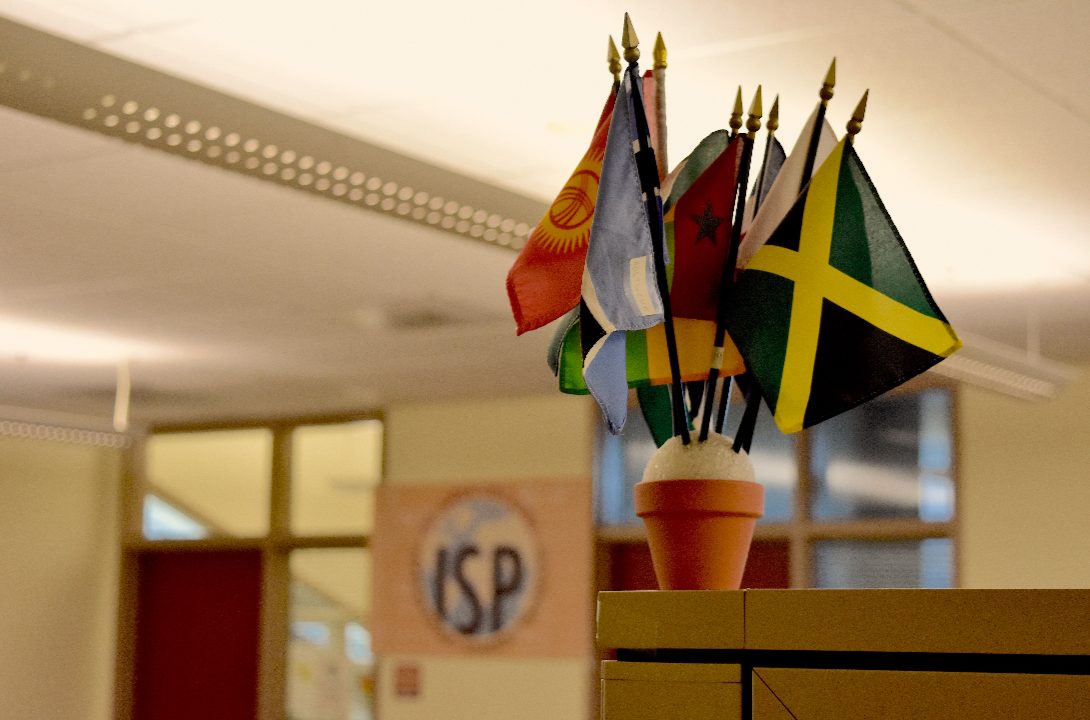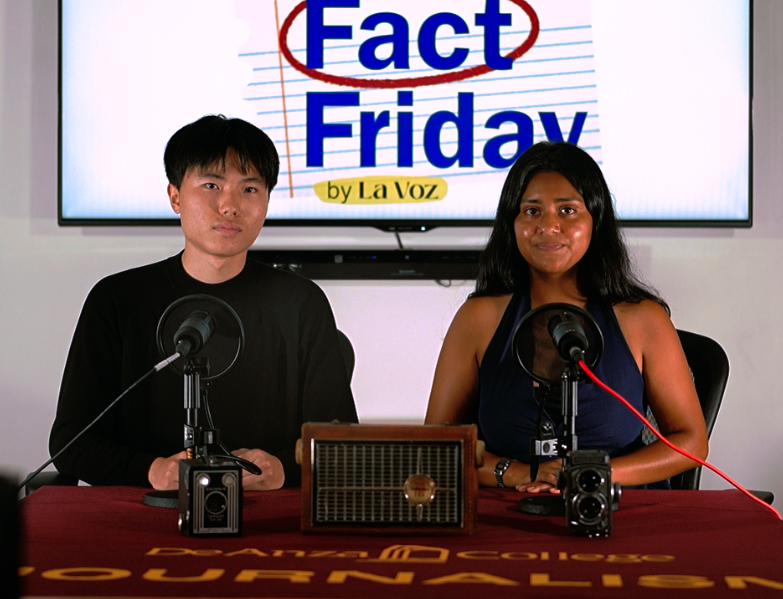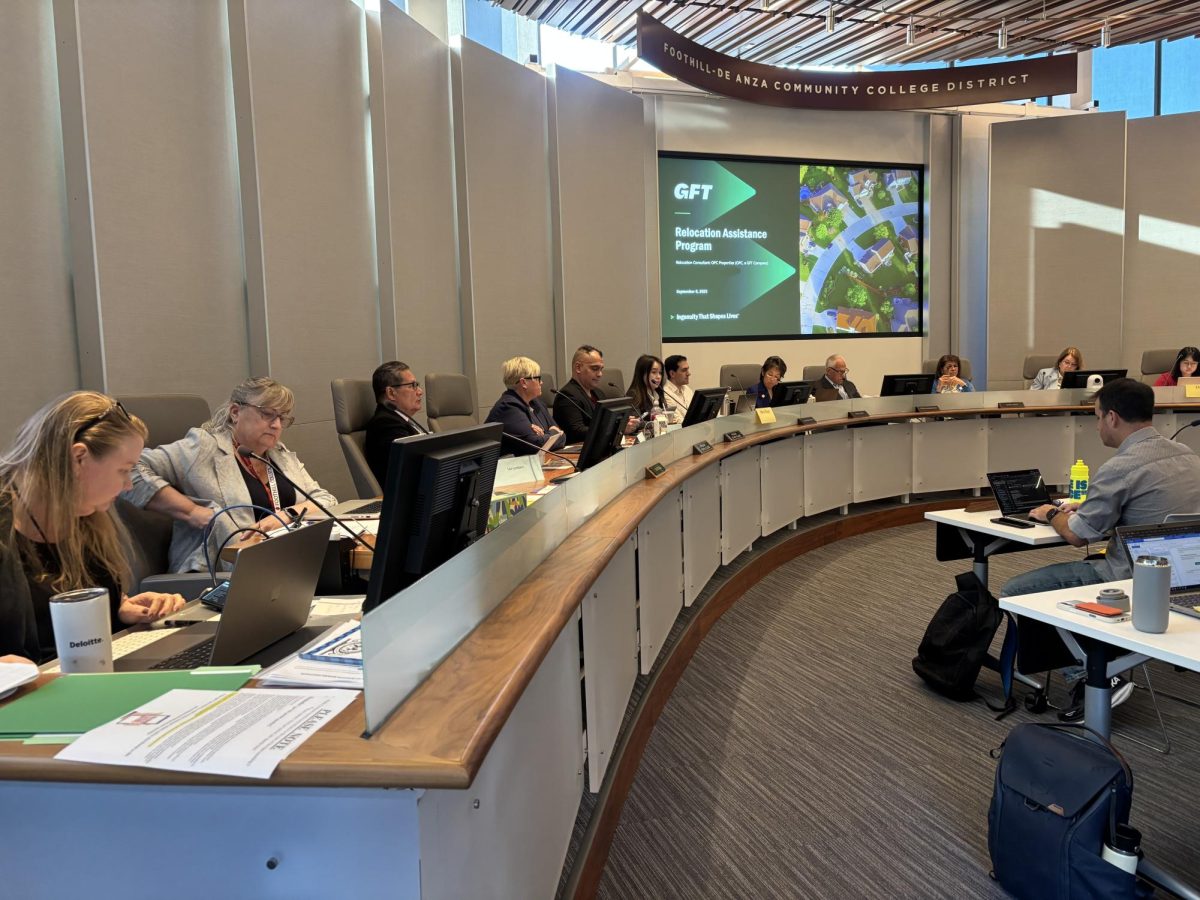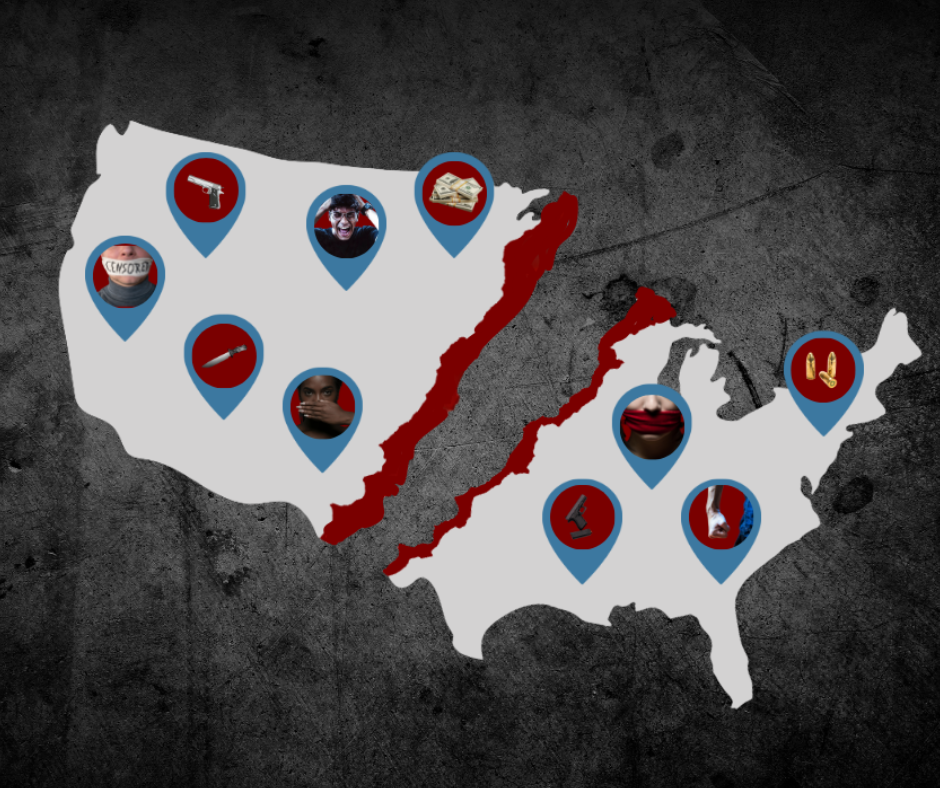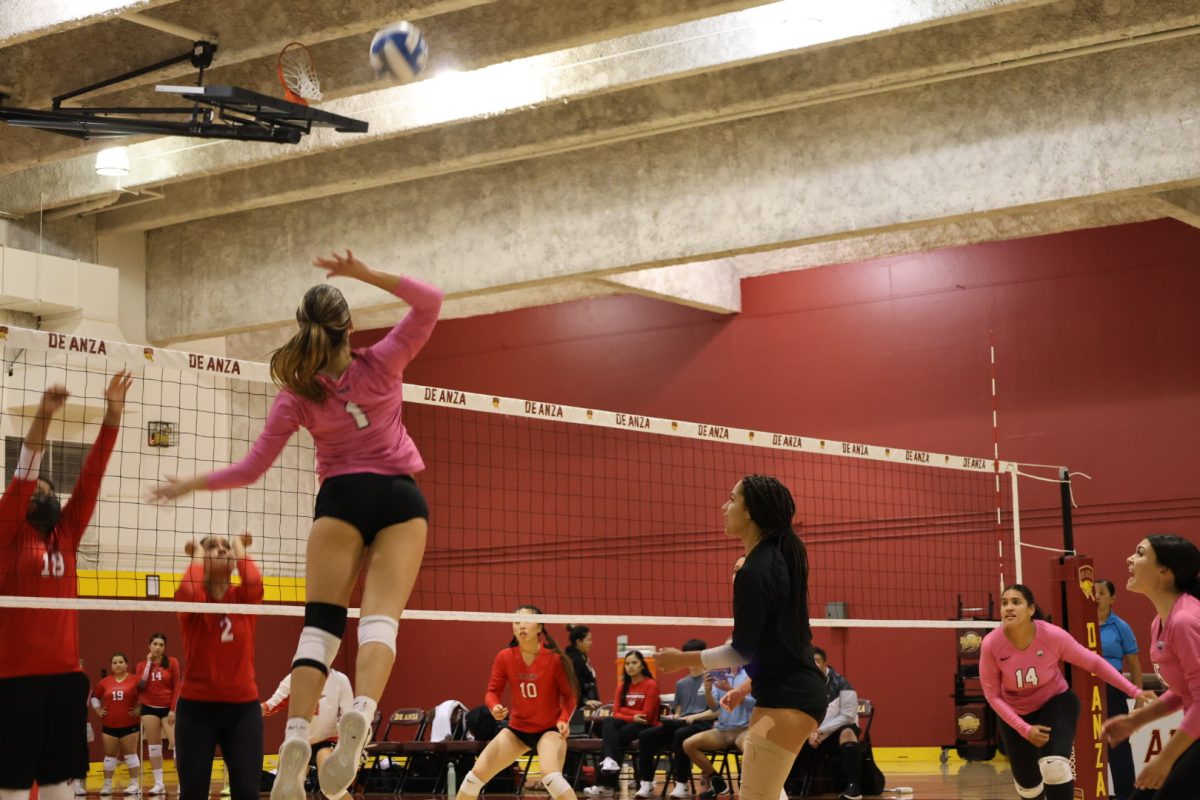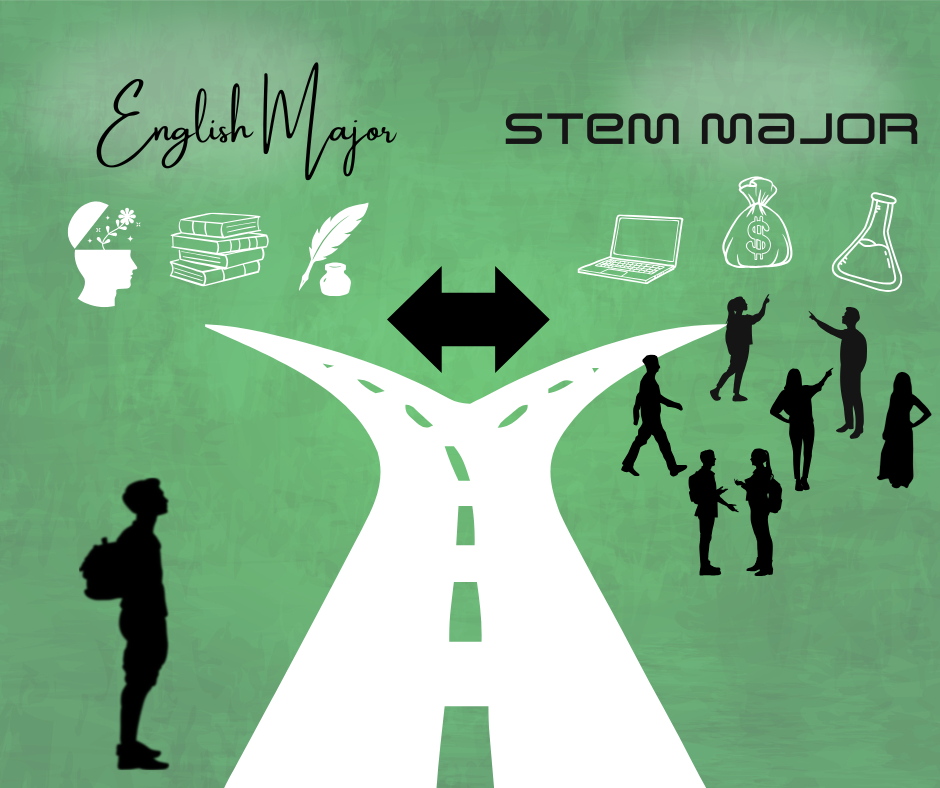On Oct. 7, the paramilitary wing Hamas attacked Israel by air, land, and sea. Thousands of armed Hamas fighters breached Israel’s Gaza border wall and began to fire toward Israeli civilians and kidnapped hostages.
Condemning the attack, Israeli prime minister, Benjamin Netanyahu, formally declared war against Hamas. Soon after, the Israeli Defense Force intensified their bombing campaign against the Gaza Strip.
As political justifications and civilian death tolls began rapidly escalating, misleading information about the war divided Israeli and Palestinian supporters further.
La Voz spoke to James Nguyen, a De Anza political science professor, to discuss involved parties, cause, and impacts of future events of the Israel-Hamas war.
Quotes have been lightly edited and condensed for clarity.
La Voz: Could you give us a brief history of the conflict?
James Nguyen: This has been an ongoing, challenging situation in that region. The people of Gaza are Palestinian, but it was once occupied by Israel. There’s a Palestinian militant terrorist group in Gaza called Hamas. There have been challenges, mostly around terrorist attacks that have happened, and also military attacks that have happened between militant Palestinians and Israel for years, decades.
There was a kind of quiet, uneasy peace that’s kind of always been over the region, except when there’s been war. And then Hamas attacked Israel.
A surprise attack on Oct. 7, killing several hundred Israelis. Now Israel is responding by basically declaring all-out war on Hamas. But that’s going to mean that they’re going to go into Gaza, bomb Gaza, and try to take Hamas out, but that may lead to civilian casualties of Palestinian civilians. It’s already been happening.
I think the death toll is already somewhere around 5,800, the estimate, with close to half of that number being children. Israel is readying for a ground offensive. They’re going to move ground troops into Gaza. They’ve sort of laid the groundwork by bombing a lot of buildings.
It’s a highly densely populated and also very urban environment in Gaza. So I think that they’re preparing for the ground attack by bombing a lot of buildings to ease that process. But it’s going to likely be as experts have said already, a protracted urban guerilla-type warfare.
La Voz: Was there any build-up to this conflict?
Nguyen: Well, there wasn’t anything imminent. Most Israelis had no reason to believe that there was any attack imminent from Hamas.
In fact, there was a belief that things were actually quite peaceful between Israel and Hamas. At least there wasn’t anything major happening for some time. I think that was really what caught the Israelis by surprise when the attack did happen because they were not expecting it.
Hamas picked that particular date because it’s the 50-year anniversary of a prior conflict between the two.
La Voz: What does the Geneva Convention constitute, and has it been an issue on both sides?
Nguyen: At this point, several world leaders, the U.N. secretary general just asked for a ceasefire in this current conflict so that humanitarian aid can be brought in because thousands of innocent Palestinians have already been killed.
At the same time, thousands more are trying to escape Gaza, likely into Egypt through the southern exit of Gaza. But humanitarian aid is unable to get in. All the while, there are about 220 Israeli hostages that are being held by Hamas.
A ground invasion would surely be long and protracted and result in not only military deaths on both sides but of civilians as well. Just because Hamas has no qualms about using humans as shields, or putting their operations in places that are densely populated with civilians. If you attack them there, then you’re going to get civilian casualties.
La Voz: What distinguishes Palestinians from Hamas?
Nguyen: Hamas is a terrorist militant group of Palestinians, and they’re hoping to destroy the Israeli state, so they’re an extremist group.
My understanding is that most Palestinian citizens do not align themselves with Hamas.
However, it’s a little bit more complicated than that, because there’s been oppression of Palestinians in Gaza by Israelis over the decades, so there’s some resentment.
But I think that most Palestinians, most Israelis, want to live in peace and coexist peacefully in some way. It’s a little bit complicated because of the history. I wouldn’t say that most Palestinians would take up arms against Israelis unless they were being shot at, which could be the case in some instances, as this urban warfare is going to kind of begin to take place.
La Voz: Have the Israeli people spurred up against their government?
Nguyen: One of the reasons this was a surprise attack by Hamas, too, was that there’s been a lot of protests in Israel in the months prior around judicial abuses by the Netanyahu government.
Netanyahu essentially packing the court with his own appointees, not too dissimilar from what we’re seeing in the U.S. and other places where there’s been democratic backsliding.
So a lot of young people in Israel are not in agreement with (the government’s actions), and you’re seeing this as well in protests in the U.S. and in other places where there are Jews for peace, right? There are Jewish people that want the ceasefire to happen as opposed to what the Israeli government under Netanyahu and the IDF and their military.
But then again, I think that there are also a lot of people in Israel that are in lockstep with what their government is doing because of the attack.
It’s sort of their 9/11. They were attacked in a surprise way and they want revenge. I’m sure that there are a number of Israeli citizens that feel that the destruction of Gaza is justified in this instance, too.
So I think that there are varying opinions, and I think that that’s why this is such a controversial topic because people have a lot of strong and differing opinions about it.
La Voz: How has misinformation spread about the war?
Nguyen: One prime example is the hospital attack that happened last week. Israel blamed a misfired rocket from Hamas, and Hamas said that it was Israel who had shot a missile into that hospital.
Then President Biden had to come out and side with Israel in that instance, given the information that the Israeli intelligence gave him. But no one knows where that attack, the explosion came from, whose side it came from.
I think that leads to another typical fog of war situation where you just don’t know where both sides are pointing at each other. And it’s unclear as to was it a mistake, an accident of some sort of misfire, or was it intentional? Maybe we’ll never know.
La Voz: How would U.S. involvement affect this war in the long run?
Nguyen: Right now the U.S. needs to find a speaker of the House.
The Republican Party is in disarray and they can’t pass Biden’s proposed $100 billion aid package that would include money for the Ukraine conflict, which we’re all forgetting about now, now that the Israel and Palestine conflict has blown up.
And then also money for supplying Israel. We know that the U.S. military has already sent in naval ships. They’re sending in advisors already to Israel. This is very fast. This is a much faster approval of aid and assistance militarily than we did with Ukraine, for example. We were a bit slower in doing that.
So politically Biden is tied very closely as an ally to Israel. So no matter how this shakes out, it could have an impact on his re-election bid for next year.
But I foresee that most most of Congress, both sides of the aisle are pro-Israel. And we have been for a very long time. And so I see continuing aid, military, and hopefully humanitarian as well into that region.
I also think we probably won’t see troops on the ground from the U.S., but I can see us sending more weapons and equipment and other assistance in that region because this has already had a destabilizing effect on the region.
We’re seeing Hezbollah come in from Lebanon down into the north of Israel and attack the IDF there.
You’re seeing anti-Israel protests throughout the region after the hospital attack. And so I think that you could see a real unraveling of that situation. And the Biden administration is just probably hoping that it just stays contained in Israel and Gaza and doesn’t go any further than that, or else it’s going to be more for Biden, the White House, and Congress that will have to deal with.
La Voz: Who is Hezbollah?
Nguyen: They are an extremist Muslim militant group and also a political party in Lebanon. They’re looking to engage with Israel. This hasn’t been the first time that they’ve had skirmishes with Israel as well. What we might be seeing is Israel fighting two fronts.
We’ve already seen around 20,000 Lebanese people flee that border area just because of the fighting that’s already taking place.
La Voz: Why is Palestine described by some as an open-air prison?
Nguyen: A lot of Palestinians were essentially just put in Gaza in order to be occupied and controlled by the Israelis for some time.
It wasn’t until recently that Israel pulled their military out of Gaza. But there’s still a system of apartheid, of control, of the Palestinian people in Gaza. That’s why some would refer to it as an open-air prison because there really is nowhere to go.
Palestinians are unwelcome in Israel. They don’t want them in Egypt. They’re essentially stuck in an area that’s about the size, square-mileage-wise, of Las Vegas with a couple million people. So that’s why there’s a description of phrasing it that way.
La Voz: Do you see a resolution to this conflict? How would you expect it to end?
Nguyen: As I mentioned earlier, once the ground offensive starts, I can imagine that Israel may make quite a bit of progress from their standpoint very early on and very quickly.
And then I expect them just like we’ve seen in Iraq, in urban warfare, just like we did in Vietnam, in World War II, that it’s going to bog down, and it’s going to be long, protracted, ugly, and painful from a high casualty count.
I foresee that Gaza is going to be basically leveled by the end of this. More or less the infrastructure is going to be pretty much destroyed.
The question then becomes, there’s no plan now from Israel.
If they defeat Hamas and they retake Gaza, what comes next for Gaza? Who governs it? Israel has said they don’t want to govern it, but what are you leaving people to return to?
I think that there may just be a vacuum in which more terrorist groups can have it. So I don’t know if there’s going to be a quick, easy, relatively painless way out of this and I see this conflict going into next year and beyond.
I hope that I’m wrong, but I see a long, protracted, and bloody war.




